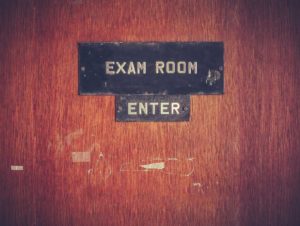
As the key component that determines the eligibility of a special needs child under IDEA, the evaluation process includes testing and observation conducted by highly trained education professionals. Each one of the skills your child possesses goes under the evaluation microscope to determine if a special education plan can help the child adapt to standard classrooms. Parents must ask the right questions before, during and after an evaluation to ensure their children receive fair and unbiased treatment
Parents that decide to allow educators to test their children for disabilities take the most important step in helping the children grow in the classroom. The greatest benefit for having your child evaluated is to determine if the child qualifies for special education services as spelled out in IDEA. The tests and observations provide the IED team with the information needed to make a thoughtful and evidence-based evaluation decision. Under IDEA, schools have the flexibility to conduct evaluations any way the schools want. Therefore, it is imperative that parents fully understand how their child’s school handles special education evaluations.
Special education evaluation tests typically analyze each of the areas of your child’s educational development. At least two professionals test and observe your child for an extended period. A psychologist discovers how your child thinks and more important, the potential the child has to fit seamlessly within a standard classroom. A special education teacher is responsible for observing your child in the classroom. You may also interact with specialists that analyze educational deficiencies in specific areas, such as language or arithmetic issues.
The professionals that evaluate your child must possess the following credentials:
The IEP Coordinator (Case Manager) organizes and manages the entire evaluation. Remember that parents have the legal right to hire professionals to conduct a special education evaluation that do not work for the school or school district.
The Individuals with Disabilities Act clearly states “With a school evaluation, you must provide your written consent before the testing takes place.” Your child’s school presents an evaluation plan you meticulously review to determine if the plan is right for your child. The evaluation plan should include recommended tests that measure your child’s ability to perform in a standard classroom.
A special education evaluation plan should also include the following information:
Parents have the legal right to be present during the testing of their children. Evaluators administer test and make observations of your child at school, at an office, or a combination of both evaluation venues. All testing and observation must take place within 60 days of the “Referral for Evaluation.” Some states have passed special education laws that have changed the length of the period to implement an evaluation plan.
To learn more about the special education evaluation process, contact a licensed attorney that practices special education law.